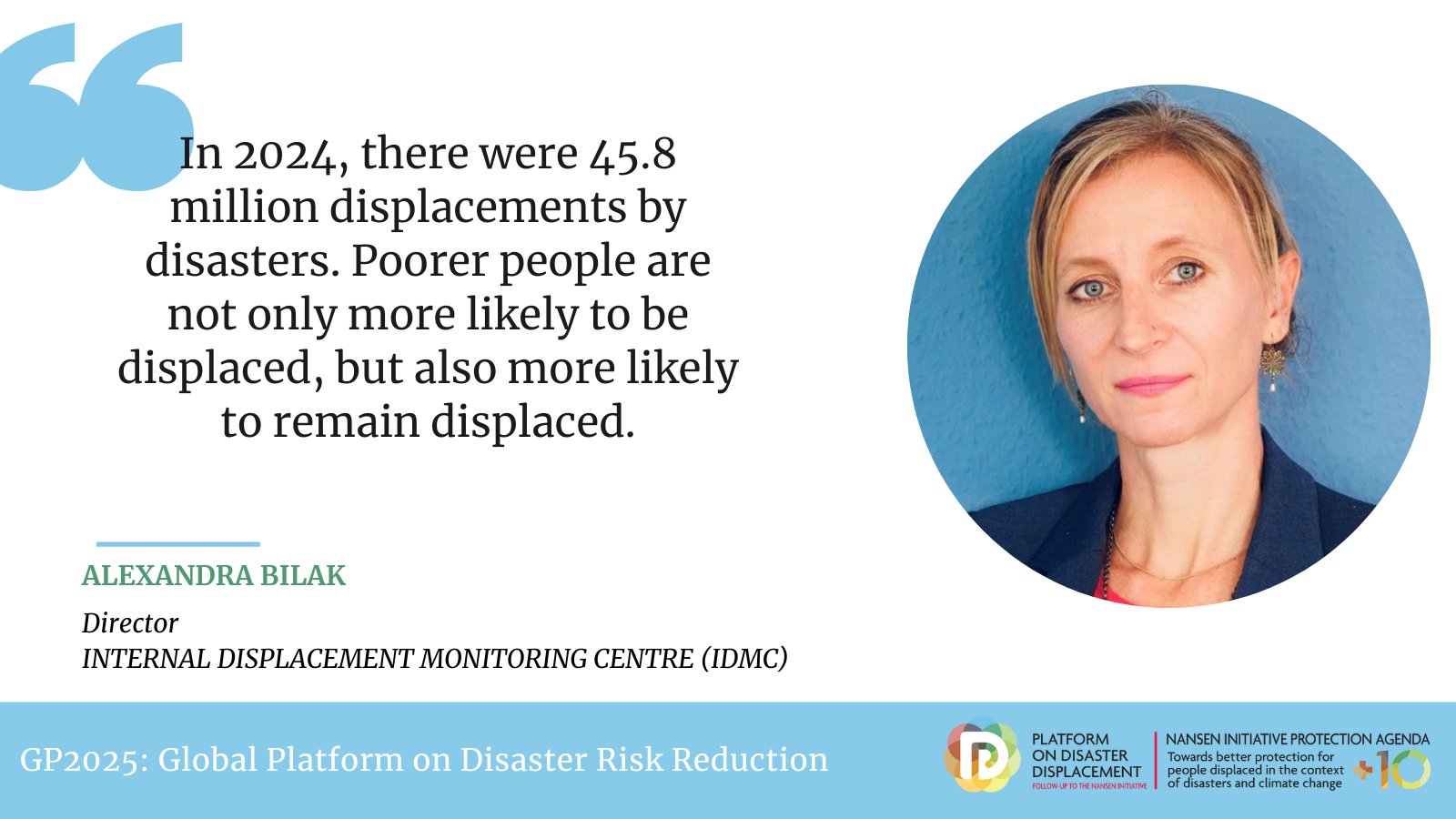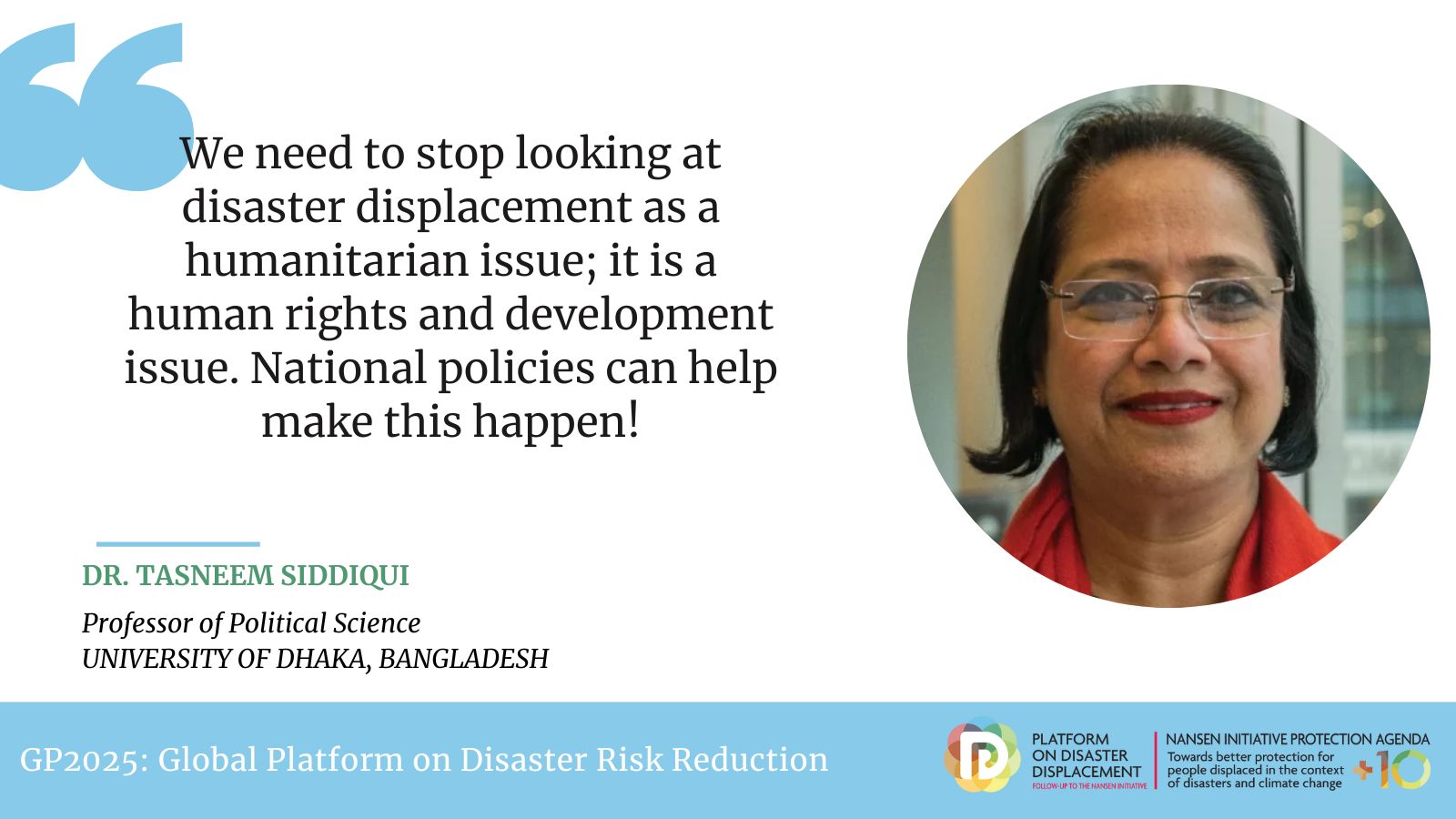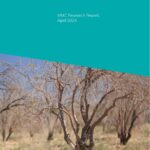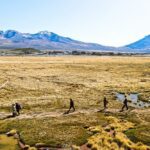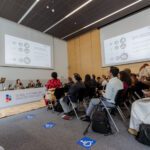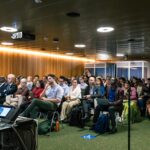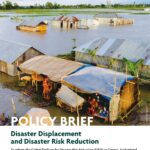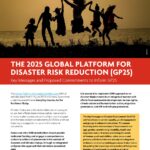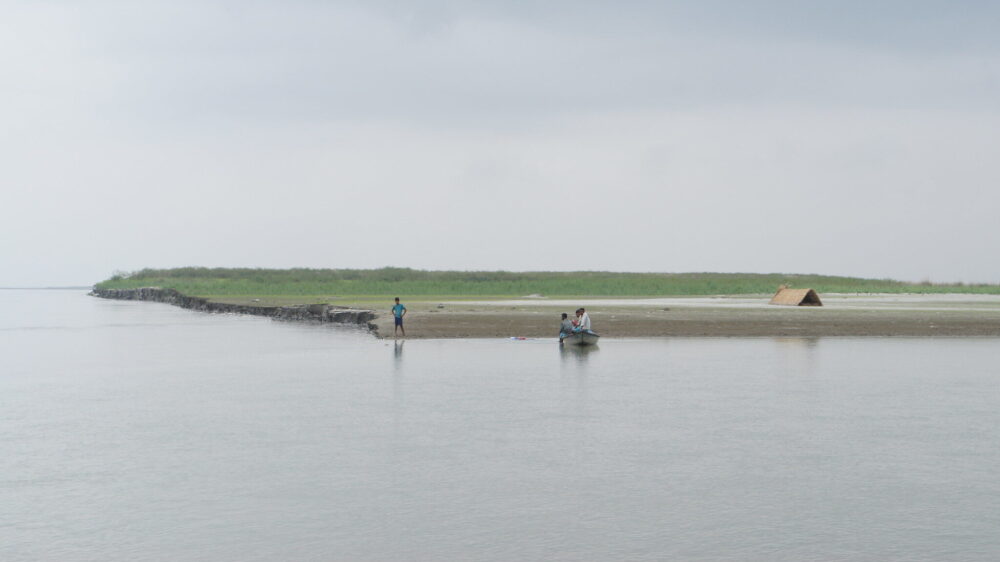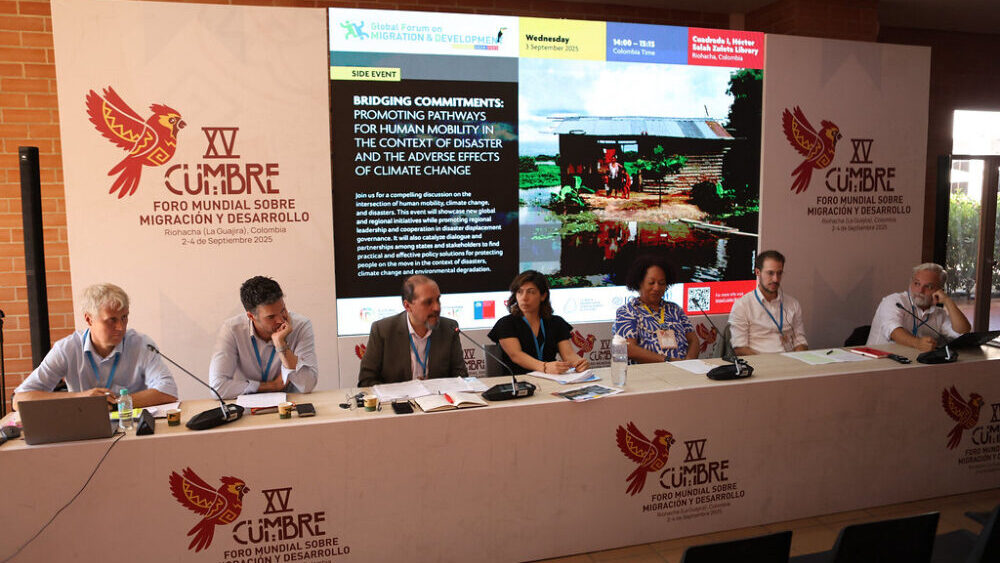Reporting Back | Disaster Displacement at the 2025 Global Platform for Disaster Risk Reduction
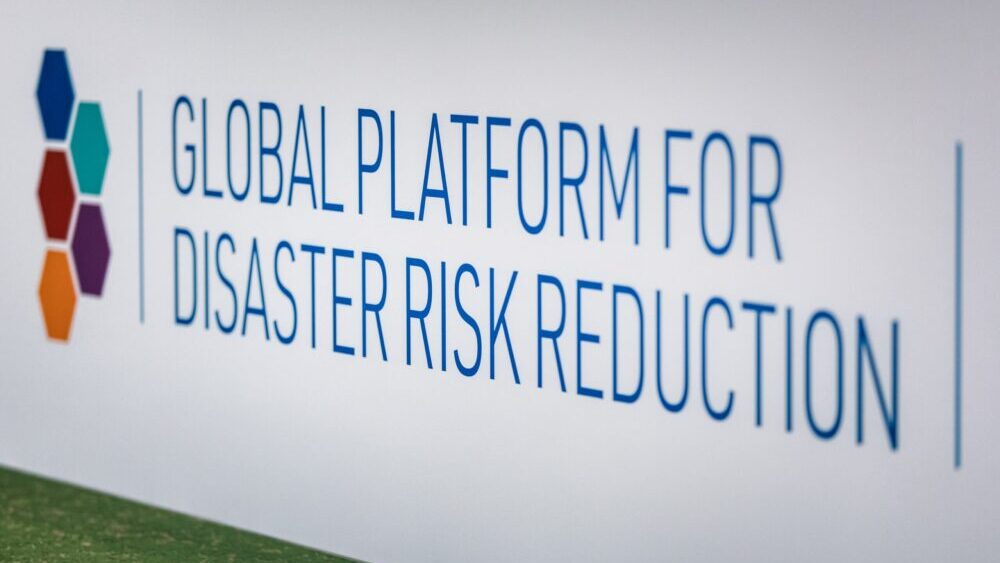
Geneva, Switzerland – The 8th Session of the 2025 Global Platform for Disaster Risk Reduction (GP25) took place from 4–6 June 2025 and was jointly organized by the Government of Switzerland and the United Nations Office for Disaster Risk Reduction (UNDRR). Global Platforms for DRR are multi-stakeholder where participants take stock of progress, share new knowledge, exchange best practice and discuss the latest developments and trends in reducing disaster risk. The last such conference was GP22 in Bali.
GP25 was held in Geneva, Switzerland under the overall theme ‘Every Day Counts, Act for Resilience Today’. More than 4,000 participants and delegates from over 180 countries attended the platform in person.
Disaster displacement was prominent on the agenda during the Preparatory Days on 2-3 June, the World Resilient Recovery Conference (WRRC) on 3 June and the official (formal and informal) GP25 programme.
The Co-Chairs’ Summary titled ‘Geneva Call for Disaster Risk Reduction’ summarizes the discussions on disaster displacement at GP25, in paragraph 35, as follows:
Understanding of drivers of displacement and vulnerabilities of displaced populations should be enhanced, including through better data and risk analytics. Systems and policies should be established to address displacement, assist affected populations, including ensuring access to essential services and psychosocial support, and enable rapid livelihood and economic recovery. Inclusive and locally grounded approaches that combine immediate financial support with investment in long-term resilience building should be applied.”
Displacement in the context of disasters and the adverse effects of climate change was discussed through different lenses and perspectives in the course of the week, including spotlights on data and financing for disaster displacement as loss and damage; community and artists perspectives on innovation and resilience; impacts of displacement on livelihoods on durable solutions and governance challenges and practices from different stakeholders and world regions.
Stakeholder Engagement Mechanism (SEM) Working Session: Data and Financing for Disaster Displacement as Loss and Damage
The Platform on Disaster Displacement (PDD), the Internal Displacement Monitoring Centre (IDMC), ActionAid International and the Global Network of Civil Society Organizations for Disaster Reduction (GNDR) organized a Stakeholder Engagement Mechanism (SEM) Working Session on 2 June 2025 titled Data and Financing for Disaster Displacement as Loss and Damage. Moderators and speakers also included the Asian Development Bank, the governments of the Philippines, Fiji and Kenya.
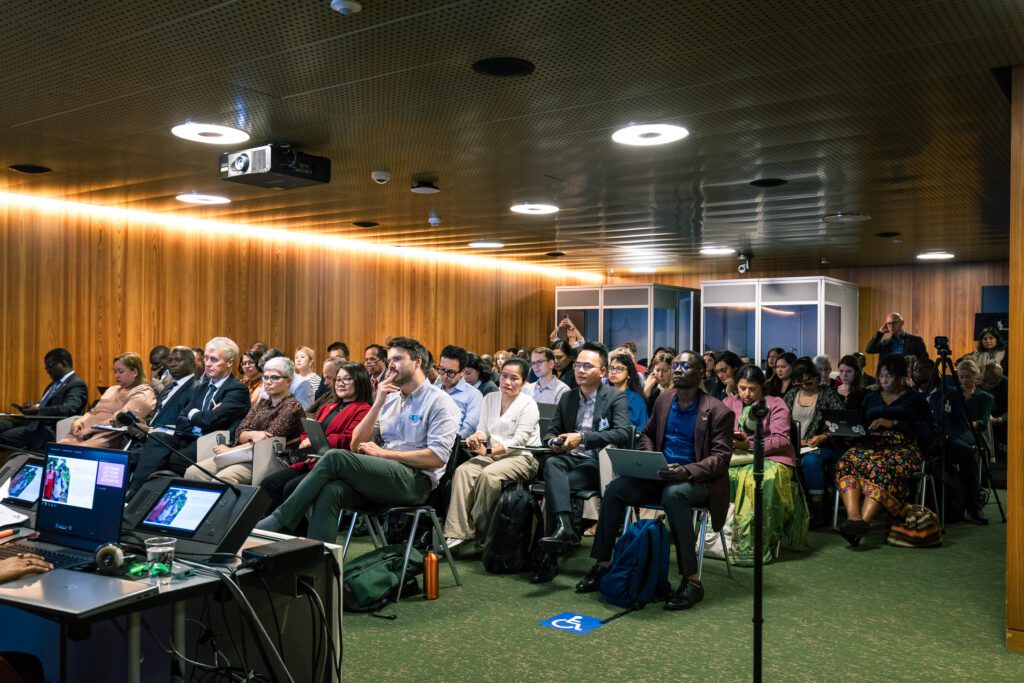
To learn more about this event, read our longer reporting back article.
WRRC Thematic Session 4 (TS4): Restoring Livelihood: Solutions for Disaster-Induced Displacement and Resilient Recovery
This event was organized on 3 June as part of the WRRC by UNDRR, IOM, and IDMC. Panelists featured three PDD Advisory Committee members including Dr. Tasneem Siddiqui, Professor of Political Science, University of Dhaka, Bangladesh, Ms. Alexandra Bilak, Director, Internal Displacement Monitoring Centre (IDMC) and Dr. Emad Adly, General Coordinator, Arab Network for Environment and Development (RAED).
Ms. Alexandra Bilak presented figures from IDMC’s two new reports on displacement data, the Global Report on Internal Displacement (GRID 2025) and the Countdown to 2030: Achieving Global Targets on Disaster Displacement. She stressed that the severity of disaster displacement varies primarily according to socio-economic variables, with the most vulnerable populations disproportionately affected and more likely to experience protracted displacement. She highlighted that while disasters can displace anyone, poorer communities face a dual burden: they are both more likely to be displaced initially and more likely to remain displaced in the long term.
Dr. Tasneem Siddiqui reported effective practices from the work of the RMMRU (Refugee and Migratory Movements Research Unit) at the university of Dhaka, Bangladesh, in collaboration with the PDD and its PAMAD project to support the implementation of the national displacement strategy by carrying out policy review, mapping of displacement, and reviewing capacity building of different government departments. She highlighted that addressing disaster displacement in the long term is a development issue and encouraged key stakeholders to work towards greater policy coherence.
Dr. Emad Adly emphasized the need for national and regional strategies in the Arab region to address challenges such as droughts and disaster displacement, highlighting the importance of integrating civil society data into decision-making.
Side Event: Displacement in Disasters- Participation and Innovation for Resilience
This multistakeholder hybrid event was organized on 4 June 2025 by the Platform on Disaster Displacement with the following partners: the International Organization for Migration, CARITAS Internationalis, the Government of the Philippines, the Internal Displacement Monitoring Centre, the Pacific WIN (the Pacific Women’s Indigenous Network) and the Caribbean Disaster Emergency Management Agency.
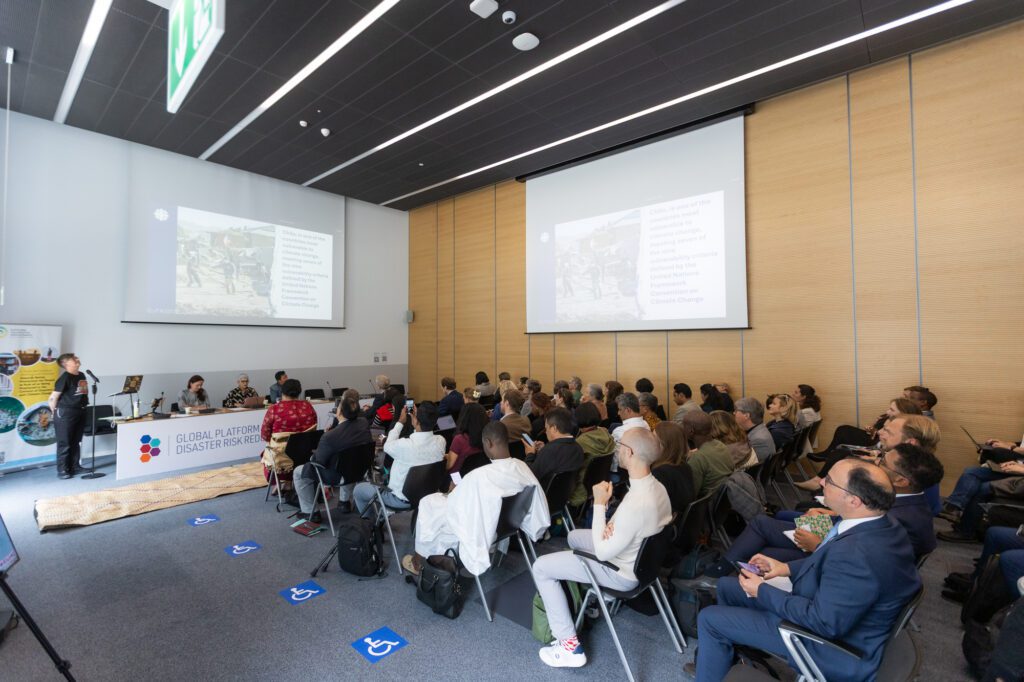
This multistakeholder side event showcased available tools and practices that can be replicated and scaled to address disaster displacement at the local, national, regional and global levels. It used art and innovative ways of engagement to bring effective practices to the forefront.
It was facilitated in a creative format by Dr. Jen Rae, Co-founder and Creative Research Lead at the Centre for Reworlding.
To learn more about this event, read our longer reporting back article.
TS2-4: Catalyzing Governance Solutions for Disaster and Climate-related Displacement
This Thematic Session was organized by UNDRR with support from a regionally balanced multistakeholder team of actors, including the PDD. It identified challenges and opportunities to strengthen the governance of displacement in the context of disasters and climate change, with a particular focus on strengthening prevention through addressing the root causes of disaster displacement and scaling up anticipatory action.
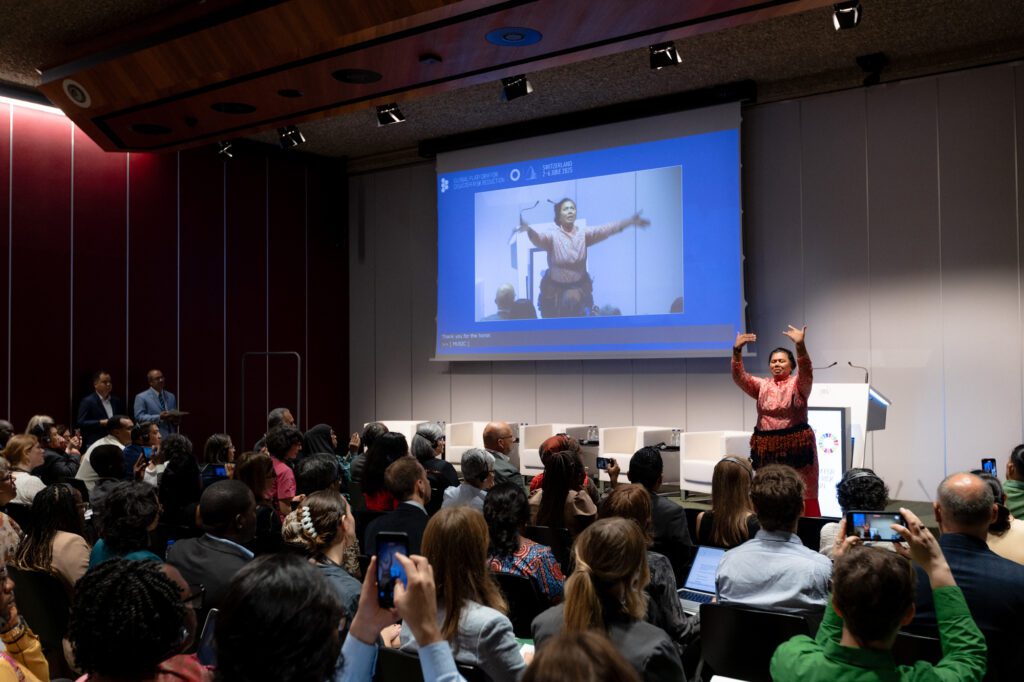
This session was moderated by Mr. Irwin Loy, Senior Policy Editor at The New Humanitarian. The panelists included Hon. Sakiasi Ditoka, Minister of Rural and Maritime Development and Disaster Management, Fiji, and Pacific Regional DRR Champion; Dr. Claudinne Ogaldes Cruz, Head, CONRED (National DRR agency), Guatemala; Ms. Zahra Abdi Mohamed, Director General, National Centre for Rural Development and Durable Solutions, Somalia; Ms. Fatimah Zannah Mustapha, Community Representative, Rehabilitation, Empowerment and Justice Community Action (REJECA); Mr. Robert Piper, Former UN Secretary-General’s Advisor on Solutions to Internal Displacement and Mr. John Mussington, Displaced Person/Activist (Hurricane Irma), Antigua & Barbuda.
Ms. Makelesi Ngata, Pacific Women’s Representative, DRR champion & Performer performed a traditional dance from Tonga as a living memory of the volcanic eruption in the islands of Tongatapu, ‘Eua, and Ha’apai within the Tonga archipelago.
Cover Photo: Antoine Tardy for UNDRR

